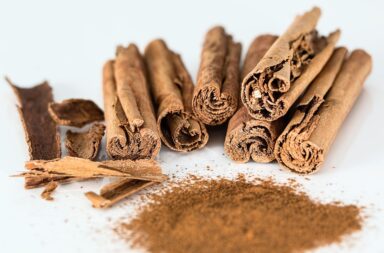Are oranges bad for arthritis? It’s quite the contrary, actually!
The myth of whether oranges are bad for arthritis is one that’s been around for some time. Let’s put it this way, it’s no different from that of whether bananas are bad for arthritis. In fact, the answer is quite the contrary – oranges can actually help you manage arthritis! This age-old, trusted fruit is especially essential if you’re dealing with stubborn arthritis that doesn’t necessarily leave you bedridden, but somehow, still manages to affect your quality of life. Sounds familiar? If so, you’ll be glad to know that natural remedies like oranges can help.
Are bananas bad for arthritis?
Although science has done a superb job coming up with medical ways to manage this illness, it’s always nice to know that there are natural remedies to help ease inflammatory conditions like arthritis without all the side effects of modern medicine. As well as oranges, these remedies include fatty fish, garlic, ginger, walnuts, and acai berries.
Oranges, especially, should be an integral part of the diet of anyone dealing with arthritis, and you can find them on a good number of home remedy lists. So, if you want to know how oranges can help you manage arthritis, this article will help you further understand why this powerful, yet easy to ignore fruit (which you probably have in your house right now) should be incorporated in your diet immediately.
Oranges and arthritis – what studies are saying

Image credit: NeONBRAND
Many people don’t know that oranges are full of many nutrients that can either help to cure or at least manage many illnesses, including arthritis. Yes, that’s right – oranges can help you manage arthritis. In fact, a study conducted in June 2004, and published in the Annals of the Rheumatic Diseases, showed that the participants who consumed very low amounts of vitamin C were three times more likely to develop arthritis than those who regularly consumed high amounts. Interesting – right?
No doubt, there are many times in life when the solution that will ease a problem is right under your nose but you just can’t seem to see it. Sometimes, you need someone to point it out to you, and that’s exactly what we’re going to do in the rest of this piece.
So, what exactly causes arthritis?
In easy to understand terms, arthritis is an inflammation that causes tenderness, swelling, and stiffness in the joints and the areas around them. What’s more, arthritis starts slowly (often in the hands) and then gradually begins to affect other areas within one or two days.
Although arthritis technically means an inflammation of the joint, the term also refers to several different conditions that plague the joints and the connective tissues that surround them. The main areas of the body that may be affected by arthritis are the hands, wrists, elbows, shoulders, knees, ankles, feet, jaw, and neck. Among other things, the symptoms of arthritis include pain, swelling, stiffness, and an inability to move the joints in the affected areas. Now, let’s now take a look at why oranges can help ease arthritis.
Why oranges are so good for arthritis
The following reasons will explain why oranges help with arthritis;
High in vitamin C
One primary reason why oranges are great for arthritis is that they contain a high level of vitamin C. In fact, all fruits and vegetables with a high vitamin C content support the joints – in addition to oranges we have strawberries, peppers, papaya, pineapples, and kiwis that are also suitable.
That said, oranges are particularly soothing for joint pain. The reason: Vitamin C as a single nutrient is good. However, nutrients and secondary plant substances work even better in a piece of fruit. In addition to vitamin C, an orange contains other ingredients that alleviate joint pain – the special combination makes the effect!
Contains collagen
Also, vitamin C plays a role in synthesizing collagen. This is the main protein found in the bones and tissues of the joint. Collagen also helps to repair worn out tissues in the body; which is why it is often used in beauty products to restore damaged skin. Since osteoarthritis is caused by wear and tear in the joints, it makes perfect sense to embrace a vitamin that works to repair these torn and worn out tissues.
Also, we’re sure you are pretty familiar with using vitamin C to treat infections. From the common cold to far more serious infections, taking vitamin C will help to fight infection in the body. This means that the chances of getting arthritis caused by infection is greatly reduced.
Powerful anti-oxidants
Another reason why you should definitely put oranges on your next shopping list is that vitamin C contains amazingly powerful antioxidants that help calm your immune system. Here’s a simple way to look at it: your immune system kind of goes crazy, and then releases an army of soldiers to attack the tissues in your joint.
The vitamin C goes into your body and lands right in the middle of this battle. Enraged, it releases its own set of soldiers called antioxidants, which fight against all those molecules which cause inflammation.
Rich in calcium
Oranges are rich in calcium, and that’s another reason why they are so helpful in managing arthritis. Calcium is crucial for developing strong and healthy bones. Interestingly, there’s a misconception that adults do not need calcium because adult bones have already been formed and are strong. Whereas it is true that adults need less calcium than children, they still require a good amount to maintain healthy bones.
Fortunately, oranges contain a lot of calcium. Calcium from oranges can help to prevent and reduce inflammation, especially in osteoarthritis. More so, oranges also contain both flavonoids (a plant compound) and carotenoids (a plant pigment). Both of these are good for dealing with inflammation. Flavonoids help to reduce inflammation by maintaining cell health, while carotenoids inhibit inflammation.
Other ways oranges with help arthritis

Image credit: 竟傲 汤
Another cause of arthritis is the reduction in the standard amount of protective cartilage around the joints. This cartilage absorbs pressure and shock. Without this protection, any pressure on the joints may cause arthritis.
As we move around and go through life, tissues in our bodies experience normal wear and tear. However, the normal wear and tear of cartilage tissue can be worsened by an infection or injury, and result in a type of arthritis. Luckily, the vitamin C contained in oranges regulates the synthesis of collagen to repair worn out tissues in the body.
Oranges for arthritis – why medication alone won’t help
Even though many medications help manage the symptoms of arthritis, these alone are not enough. The truth is, a healthy lifestyle is just as important. Dietary changes to include foods high in vitamin C that can naturally help to ease the symptoms must be made.
To Summarise
With all these amazing benefits of vitamin C, it’s pretty surprising that more focus isn’t placed on the role of vitamin C in the management of arthritic conditions. Especially since basic fruits like oranges are loaded with vitamin C. They’re easy to come by, and very affordable as well. What’s more, there are so many different ways you can include oranges in your diet.
You can have them in a fruit dessert, a fruit salad, orange lemonade, or plain old orange juice for breakfast. And if you really can’t think of interesting ways to include oranges in your diet, well there’s nothing stopping you from having them as they are! Whatever you do, by all means, have some oranges, and have lots of them.
We hope you enjoyed reading this article, and that it’s helped you dispel the common myth regarding oranges and arthritis. Please share this post with anyone else you know who suffers from rheumatism.


